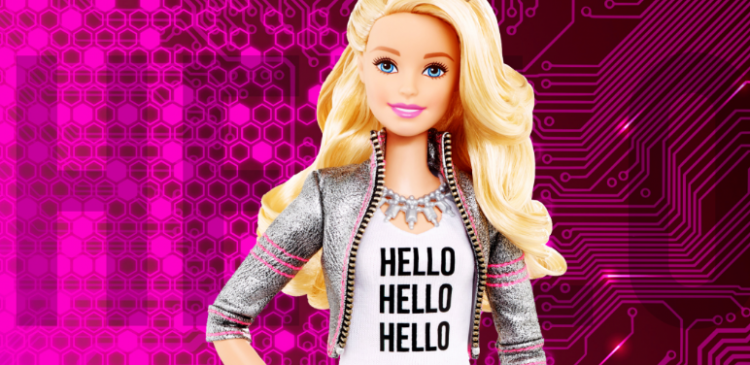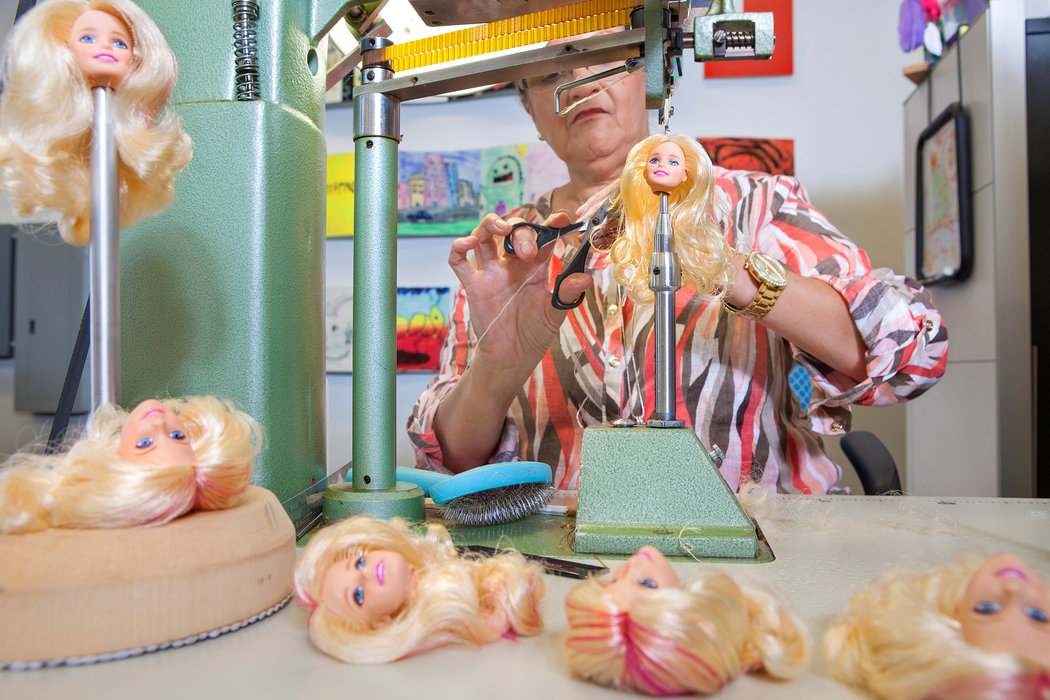Barbie Doll: The Next Generation

There is lots of debate about developing Artificial Intelligence and whether it will benefit or threaten society. An online campaign was recently launched against sex robots and movies like I, Robot demonstrate that, deep down, we all worry that Artificial Intelligence will take over the world.
The chief concern is that the robots will replace people in the workplace and render large populations unemployed. Despite these concerns, people have continued to develop robot technologies to perform tasks currently done by human employees. Siri receives over a billion spoken requests per week. We are getting closer and closer to the “robot dystopia” people have dreamed about -- and feared -- for years.
However, there is one question that has yet to be addressed: how will a world of robots effect children?
There is already a lot of talk about the how tablets, TV, and other technologies are ruining childhood development by keeping kids indoors, reducing their physical activity, and so on. However, the relationship between technology and children will be further tested this November when Mattel releases Hello Barbie, the first ever AI Barbie doll.
Hello, Barbie is kind of like Siri for kids.
Instead of offering directions or providing random facts, Hello, Barbie can have virtual conversations with young girls, respond to questions, and offer advice. Barbie is also programmed to retain personal information about its child companion. For instance, Barbie will ask “what do you want to be when you grow up?” The child will answer, “I want to be a doctor” -- and Barbie will reference that for future conversations. Barbie has up to 8,000 lines of dialogue prepared to create a bond between doll and child. Psychologists and other childcare experts are concerned however that these programmed responses can inhibit child curiosity and have a long-term influence on a young girl's personal development and self-esteem.
This is a strong concern for the Barbie franchise, which has been accused reinforcing sexist or demeaning stereotypes about women and girls through its products. I agree that a Siri-esque talking doll could prevent children from using the full extent of their imaginations. One of the most important parts of playing as a child is figuring out who you are, and who you want to be. It is important for a child to pick up a stuffed toy, action figure, or a doll and invent their backstory, skills, goals, and so on.
I remember enjoying that as a child. A young girl should be able to pick a doll from the shelf and turn it into a superhero, a doctor, or a teacher. Hello Barbie is structured to adapt to the child, not frame the child. Some toys or dolls come with presets, or categories for the child to choose from. “Do you want to be a doctor or a teacher? Do you want to wear blue or pink?” This AI dialogue responds to and encourages what the child already likes. “What do you want to be when you grow up? Which class do you like? I like math too!”
I do worry that this advanced interaction will replace the “imaginary friend” phase that most children go through. Dreaming about an ideal companion is one thing, but having a physical companion is another. What if kids, particularly shy kids, isolate themselves from their peers to spend their time with a piece of plastic? Most children play dolls together, and craft stories and dialogue. With Hello, Barbie you don’t need friends to play dolls.
There are other nagging questions: Will Hello Barbie always be skinny, white, and blonde? Will she speak Spanish, as well as English? But the AI Barbie thing raises a bigger question: How will robots, or artificial intelligence impact childcare and and education? Will we be like Wall-E, where robots teach in school? Will parents rely on artificial intelligence for babycare advice? Will robot babysitters become a thing? Will toddlers be able to distinguish between robots and humans? If AI education develops further, will it be managed in the private or public sector?
In short, what will become of a generation raised by robots?








